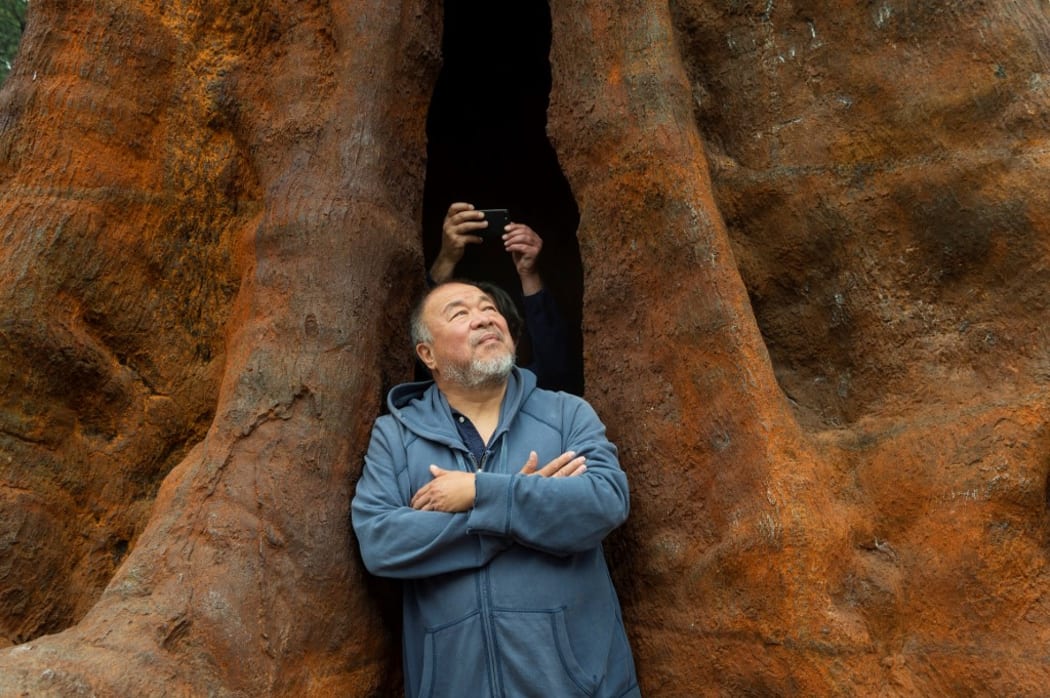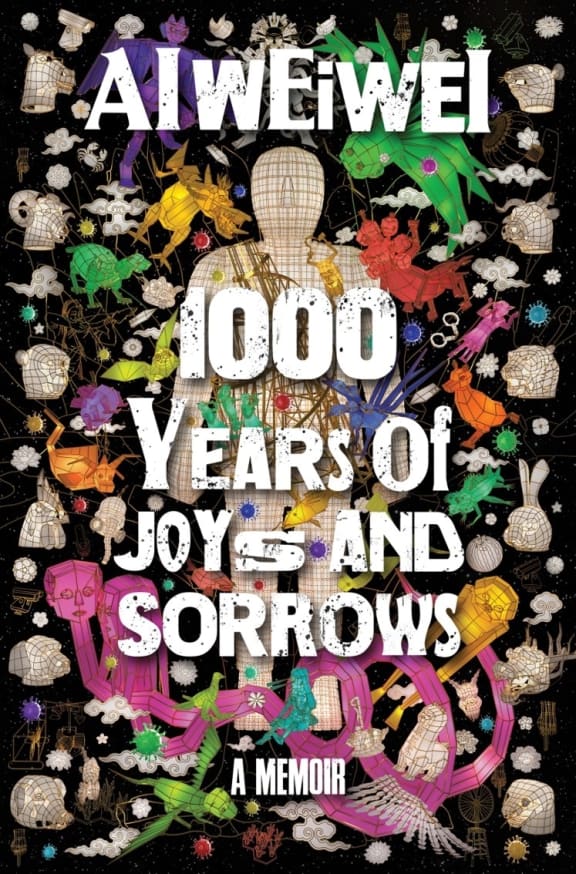Ai Weiwei has been described as the most important artist working today, and an `unsilenceable voice of freedom'.
His sculptures and installations have been viewed by millions around the world.
His architectural achievements include helping design the iconic Bird's Nest Olympic Stadium in Beijing, although he later disowned the Games as state propaganda.

Ai Weiwei poses with his artwork Pequi Tree Portugal 2021. Photo: AFP
His political activism has made him a target of Chinese authorities and, in 2011, around the time of the Arab Spring uprising in the Middle East, Ai Weiweii `disappeared' in China - held in secret detention, without charge, for months.
His new memoir, 1000 Years of Joys and Sorrows, reveals more about his own family's connections to the sweep of 20th century Chinese history.
Ai Weiwei tells Kathryn how his father Ai Qing, an intellectual and poet, knew Mao Zedong, the founding father of the People's Republic of China.
“My father was born in 1910. When he was 19 years old, he went to Paris, in his generation many people went to the West to try and find some new ideology for China.
“So, he was one of them. He studied the art and poetry. So, once he comes back, he becomes a prisoner under the Nationalist Party.
His father was a well-known poet, popular with young people, he says.
“By that time, he was already very well known in literature, poetry, and also in young students minds because he writes the most beautiful poems for defending China and calls to wake up the nation.
“And he becomes a voice which influence the whole generation of young people, many communist leaders of today are reading his poems and become so called the revolutionaries.”
He initially had a close relationship with China’s first communist leaders but eventually fell victim to the cultural revolution.
“It was a continuous purge for intellectuals during the cultural revolution, my father was sent to even more severe locations.
“And I grew up from my tens to my 15s we were living in a hole underground and my father has to do all those physical works in cleaning the public toilet and constant humiliation. And life is extremely difficult, it's just poor to a maximum degree.”
His father maintained his dignity despite the appalling treatment he was receiving, Ai Weiwei says.
“My father told us, we just have to think we were born here.
“So, he gave us a reason to find dignity in being poor, and even being humiliated. To know what happens later, is beyond our imagination.”
His father was ultimately rehabilitated, but Ai Weiwei’s anger remained unabated and he went to live in the US.
“Even after cultural revolution, there is very little discussion about what really happened to this nation, and to these millions of intellectuals who have been sacrificing their life, and also completely lost the ability to speak out. So that make me feel to make the decision I have to leave.”
He arrived in the US with no money and no English, he says.
“I went to the United States speaking no words of English, and there's no money. So, my struggle is how to survive. Yes, I was hanging in the art territory, and also become a friend of Alan Ginsberg, I kind of realise there's certain freedoms in that society.

Photo: Penguin Books
“But also, I have strong doubts about capital and also about American imperialism. So that's basically developed, through that 12 years the United States.”
He returned to China in 1993 so he could visit his father, he says.
“In 1993 I went back to China because my excuses my father is in hospital after 12 years I haven't seen him, I think is this a moment, I would leave US and go back to China.
“And after I went back to China I realised China is already like another planet that completely changed you know, the look of China had been changed, but the system, the communist system under the whole ideology is never changed.”
He spent about 12 years in Beijing involved in the underground arts scene he was also blogging which brought him to the attention of the authorities and in 2011 he was arrested.
He puts his defiance down to being the son of his poet father.
“Well, I was born as a son of poet whose only crime is about dignified belief of freedom of expression. I have to find out what is freedom of expression.”
He cannot return to his homeland and says the refugee will always feel like an outsider.
“It's extremely hard to be so called adjust to a new environment. It doesn't matter you're even have more security or probably better off in the life conditions still, spiritually you do feel your outsider.
“That will stay with me forever, I think but that also gave me a advantage to be more independent, to speak my mind to be without any restraints.”
He believes the artist holds power even in a totalitarian state.
“If I do have any power is about independent thinking and attitude. Art simply cannot be a declaration of the society, but rather to raise questions and attitudes to test an individual of the power of the mind and imagination."

